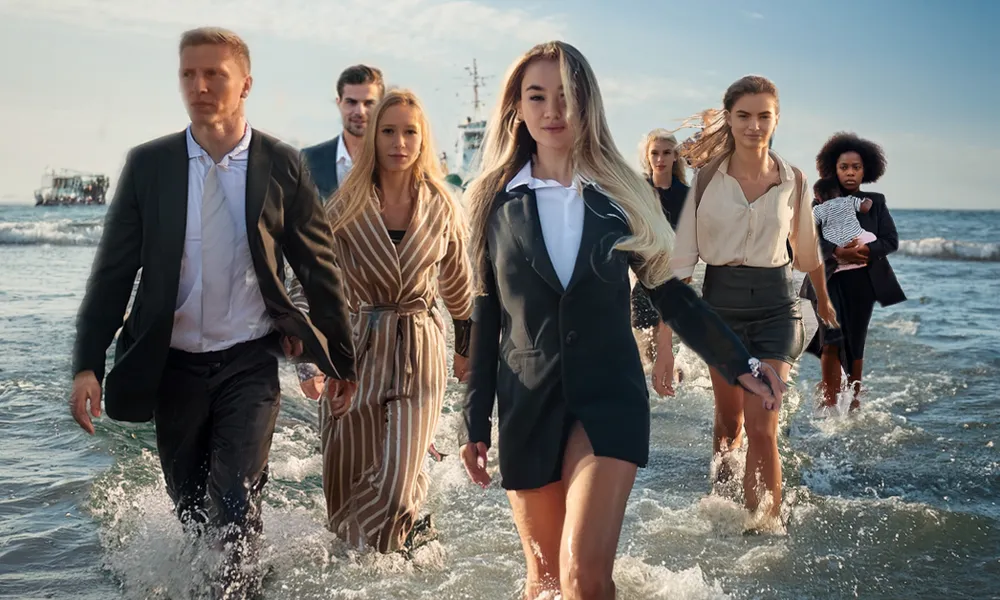By Katerina Nicolaou and Niki Laou
Limassol is moving faster than the rest of Cyprus and not everyone can keep up. Once a laid-back seaside town, it has become the island’s most dynamic, and most divided, city. Tower cranes rise above old neighborhoods, rents climb higher each month, and traffic now defines daily life. Luxury towers and rooftop restaurants share the same skyline with overworked delivery riders, migrant workers, and long-time locals priced out of the city they built.
Russians, Ukrainians, Israelis, Asians, Africans, and an increasing number of Europeans mostly coexist harmoniously. Limassol’s diversity is a defining strength, with the ongoing challenge being inclusion and integration to ensure it remains a city for all.
The city is defined by striking contrasts unique to Limassol: a bustling financial hub and a seaside retreat all in one. Luxury towers, top-end limousines, and Russian women in haute couture stroll along the same streets where residents in casual beachwear enjoy the sun, while housing struggles, overworked delivery riders, and lower-income residents navigate the same place.
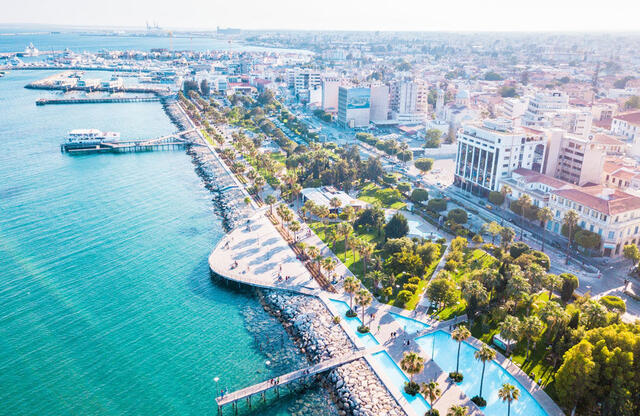
Recent murders and their coverage in the Russian media underline the city’s unique rhythm, a pace that often feels unbound by the small size of the island. For some, this is progress: a Mediterranean hub reborn as a cosmopolitan capital. For others, it’s a tragedy, a city losing its soul to speed, money, and cement.
Through the voices that follow, from a local who calls the boom an “invasion,” to a Russian professional navigating new reality, to a young Crimean rediscovering home, an anthropologist questioning who benefits, and a mayor envisioning inclusion, the story of Limassol emerges as more than a tale of urban growth. It’s about identity, belonging, and the high cost of progress in a city that refuses to slow down.
A Russian Professional’s Perspective on Limassol’s Transformation
AS, 50
Having worked in the financial sector in Cyprus for nine years, a Russian professional has witnessed the rapid evolution of Limassol of the last decade firsthand. She makes a clear distinction between the earlier wave of Russian arrivals who came to Cyprus seeking second homes and business opportunities and the more recent wave fleeing conflict. "The previous generation was running to Cyprus for a second home. Now, after the Ukraine war, a lot of people are running away from the situation," she explains. Relocating from Moscow in search of a calmer European lifestyle, she shares her observations on the city’s development, infrastructure challenges, and the changing dynamics of the Russian community.
AS’s decision to leave Moscow was driven by a desire for a calmer European lifestyle. "I wanted a calm European country to live my life, enjoy the weather, and have a proper legal framework for relocation," she explains. She adds that, overall, "the locals were very friendly; I didn’t have any problems," though occasional cultural shocks like witnessing unusual public disputes in villages did occur.
She fondly remembers her earlier days in Limassol when the pace was slower and the city had a more relaxed atmosphere. "I miss the less-developed Limassol," she says. Today, she feels Limassol has taken on the energy of a busy urban center.
Her biggest concern is infrastructure. "The roads are dirty, the electricity cables are everywhere, and garbage management is a mess," she points out. She believes Cyprus must upgrade its systems to keep up with the city’s growth. Traffic congestion, unclean streets, and chaotic town centers are ongoing frustrations, particularly for residents of the Russian community.
Dynamics & Opportunities
On the positive side, she sees promise in the younger generation of Russians arriving in Cyprus. "It’s nice to see the younger generation coming here and working. Things are changing for them from the Russian community itself. Schools are expanding and education is improving," she notes.
Many are starting families and seeking a better quality of life, which has led to the growth of cultural institutions and Russian schools, reflecting a community evolving beyond mere residency to create sustainable structures for the future.
Cultural Observations
Regarding the reputation of Russians and money laundering AS believes it’s a narrative more common for the old generation. “There were people seeking financial opportunities and some of those who were involved in money laundering, we cannot hide this but things have changed”.
She observes a generational divide within the Russian community. "The older generation came for second homes and financial opportunities and the younger ones are fleeing conflict", she says.
On the growing Israeli community, AS says that the Russian community is close to their culture. “The profile of the Israelis coming here are European people” she says.
In general, life in Limassol is still convenient and more easy-going than abroad. "Everything is close, 15 minutes even with traffic. You can go to the seaside, there are hotels, spas, and it feels like being on holiday all the time," she says. She appreciates that most Cypriots speak English and mentions, "I’m learning Greek." Despite some safety concerns involving people from third countries, she appreciates the European sensibility of Cypriot society.
“Everything is reachable even though we are at the corner of Europe. I still like the Cypriot food, basic things but healthy”, AS says.
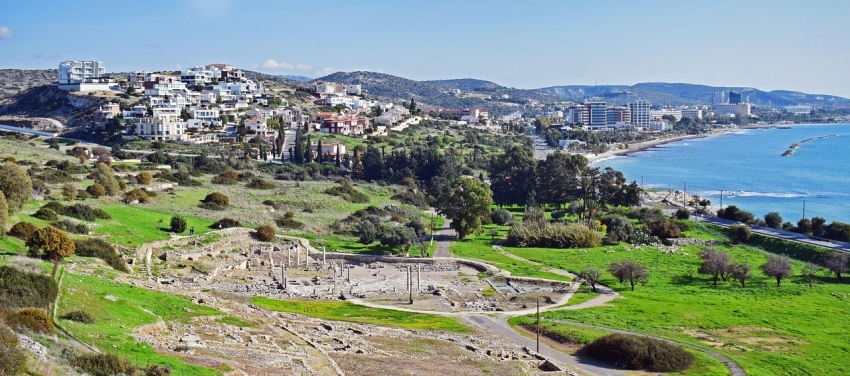
Limassolgrad, Interrupted: Finding rhythm in a new home
Daniil, 25
“I first came here in 2014 as teenager, I hated it,” says Daniil, 25, from Crimea. “It felt slow, strange, disconnected. I couldn’t imagine staying.”
Eight years later, war changed everything. “When the invasion started, I left,” he says. “Cyprus was familiar, the city had energy, people were open”, and he already knew how to start.
Today, Daniil works in IT and lives comfortably in Limassol. He’s switched jobs several times, a reflection of how dynamic the tech scene has become for new arrivals and earns well above the average relocation salary. He recently bought a car, rents a flat without struggle, and insists “the rental market isn’t as bad as everyone says, if you search smartly, you can manage.”
He’s far from the stereotype of the nouveau-riche Russian expat. Instead, he’s one of a younger generation trying to find belonging in a city reshaped by migration and reinvention.
A wave that changed the city
Since 2022, Cyprus has seen a visible influx of Russian-speaking professionals and families, alongside Ukrainians and Belarusians, redrawing the map of Limassol. Tech offices, small businesses and cafés with Cyrillic menus now mark districts that were once quiet.
Estimates vary, but thousands of new arrivals have come post-February 2022, driven by remote-work opportunities and company relocations. At the same time, stricter EU and US sanctions have pushed out older, opaque corporate structures, a cleanup that’s redefining Cyprus’ Russian connection.
Before the war, Cyprus was already familiar ground: a service hub for Russian business, home to parishes, schools and publications in Russian. But this new wave is different, they are younger, highly skilled, digitally native, and socially active.
Finding balance and connection
“Work is easy, life is easy,” Daniil says. “Cyprus is simple. But socially? It depends. Many Russian speakers don’t speak English well, so they mostly stay among themselves. I have some friends who mix with Cypriots and other expats, but most people I know live in their own circle.”
That circle, however, is lively. Daniil curates an online platform and community that brings together Russian-speaking professionals for DJ nights and cultural gatherings, that draw a few dozen people at a time. “It’s not about being exclusive,” he explains. “It’s about sharing something familiar, Russian music and energy, that’s hard to find here.”
At one of these events, he once faced “a couple of aggressive guys,” as he puts it, “but nothing serious.” Most encounters, he says, are positive: “Cypriots are warm. Sometimes a bit defensive, but I understand it. It’s their place”.
Between two waves
Daniil makes a clear distinction between the Russian-speaking communities before and after 2022.
“The people who came before us, in the 2000s and early 2010s, they built their lives here. They speak Greek, they married into Cypriot families, they’re part of society. We’re different. We came with laptops, not families. Many of us still don’t know what comes next.”
Sunshine, screens, and self-sufficiency
For Daniil, the weather remains a defining part of Cyprus life. “I love it, especially winter. Summer can be brutal, but you adapt. You plan your day around the heat.”
He laughs at the island’s bureaucracy but praises its pace of life: “Things take time, but once you get used to it, it’s fine. Everything else -the food, the markets, the fresh produce- makes up for it. It’s a good place to build something.”
He also notices that, contrary to media narratives, “not everyone here is rich. Many Russians just work, rent, live simply. Cyprus is easy to love if you don’t expect luxury.”
Cyprus through new eyes
When asked what he’d like to see improved, Daniil doesn’t hesitate: “Public transport and digital systems. Everything should be online, no paper, no queues. It’s not hard.”
But on the bigger question, whether Russians and Cypriots are very different, he pauses. “Honestly? Not that much. We’re both very similar, we love food, we complain about the government,” he laughs. “The main difference is language. If more of us spoke better English or Greek, we’d mix more easily.”
What comes next
Looking ahead, Daniil sees Cyprus’ Russian-speaking community continuing to grow, not shrink. “There will be more of us I believe, people who come for work, who like the weather and the freedom. Cyprus is stable, safe, connected. For many, it’s a second chance.”
He’s hopeful that this new wave will build bridges rather than walls: “We came here because we wanted a normal life with no politics, no fear. If you give people rules and space, they’ll follow them. If you give them a community, they’ll contribute.”
Limassolgrad may still be a local joke, but for many like Daniil, it’s about finding rhythm in a new home. Between DJ nights, fresh market mornings, and endless sunlight, the story of Cyprus’ new Russian-speaking generation is less about luxury than about adjustment, belonging, and the quiet confidence of those who came to stay.
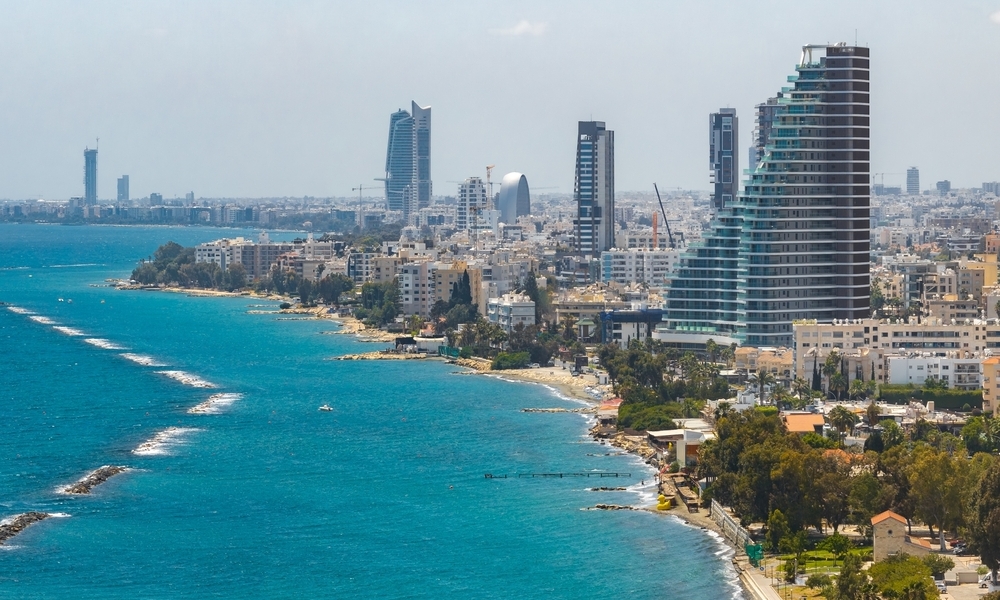
A Limassolian on the City’s Vanishing Soul
LS, 79
For someone born and raised in Limassol, the city’s rapid development has been experienced not as growth but as an “invasion” and a “tragedy”. She believes that authorities and a system built on money are largely to blame, as after so many years of populations fleeing war zones or moving to Cyprus, the government did nothing to protect the town’s character. The decision to build the towers, she says, “went against the city’s culture and identity."
LS, 75, has lived through decades of change from the post-1974 reconstruction after the war to waves of incoming populations. A woman deeply involved in the city’s cultural life, she shares her reflections on what has been lost and how Limassol has changed from a close-knit community into a bustling urban hub.
Historical Context
"The inevitable change began after the war in 1974," she explains. "The tourist areas had to be rebuilt quickly, rushing into a new tourist industry that was lost during the conflict." Over time, Limassol also saw an influx of Lebanese residents, many of whom made the city their home, further altering the social fabric. "What happens now, however, is a tragedy," she says, reflecting on the city she once knew.
For LS, the Limassol of her youth was vibrant and culturally rich. She was deeply engaged in cultural events, attending performances, and participating in civic life. "What has become of Limassol is very different from what I remember," she says. Streets that were once familiar are now crowded and traditional neighborhoods have been transformed by modern development.
She notes a difference between the communities now establishing themselves in Limassol. "The Israeli community is more isolated and seeks to build areas with their own culture," she observes. By contrast, "the Russian community population is not as visible or aggressive in establishing itself." She gives personal examples: "I know from acquaintances that people receive knocks on their doors from Israelis wanting to buy their homes."
She also comments on the impact on local life. "The cost of living, rents, and everything else feel different, as if the locals themselves are strangers in their own city. The signs on shops and the types of shops themselves are foreign to what I grew up with." For her, these changes are tangible reminders of a Limassol she can no longer recognize.
LS views the transformation of Limassol with a mixture of nostalgia and concern. While she recognises that change is inevitable, she believes the cultural and social identity of the city has been fundamentally altered. Through her eyes, Limassol’s rapid growth is not just urban development, it is a cultural and historical shift that continues to redefine what it means to be a resident of the city.
Anthropologist’s view: who benefits, who’s left out?
Dr. Theodoros Kouros, Social Anthropologist and Lecturer at the Department of Communication and Internet Studies is skeptical of Limassol’s transformation, not out of nostalgia, but through an analytical research - based view of social change. As a social anthropologist, he cautions against both the romanticisation of the past and the uncritical celebration of growth. For him, the city’s rapid expansion exposes deep inequalities and reveals who is included in this so-called “progress” and who is left out.
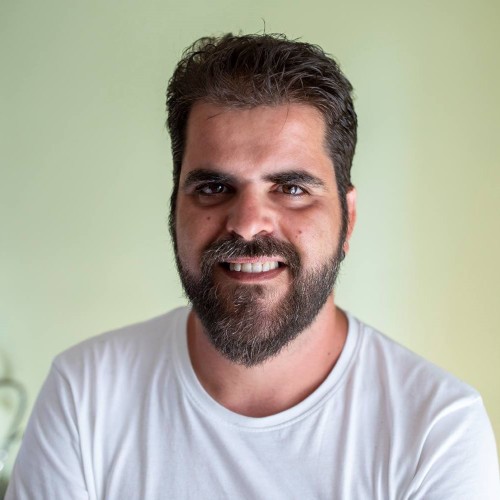
Romanticising the past or misunderstanding progress
“I find it problematic to look at the past with a romantic lens and idealise it,” Dr. Kouros begins. “But it is equally problematic to think that the development we see today in Limassol is progress, without asking who it excludes and where it is heading.”
He explains that the city’s transformation has been driven primarily by investment logic rather than by social need. “Prices are rising dramatically, property values, the cost of living, everything,” he says. “What we call ‘development’ is presented in advertisements as investment, not as social space, not as someone’s home. It’s as if we’re talking about the stock market, not about people’s everyday lives.”
Infrastructure, urban planning, art and access
Dr. Kouros argues that genuine development must go hand in hand with infrastructure. “Population growth needs to be matched by sewage systems, traffic solutions, proper planning. Otherwise, development happens at the expense of the residents.” He notes that Limassol is expanding rapidly, stretching from Parekklisia to Erimi, “growing fast but without a social orientation.”
Even in the cultural sphere, he sees similar divisions. “Art spaces are treated as investments too. Access to art is restricted, ticket prices target specific audiences,” he notes. He worries that historic industrial buildings in areas like Ayios Ioannis and Tsiflikoudia, which could serve the community, are instead “filling up with apartment blocks. I can’t imagine what will happen with parking if that continues.”
Molos-Marina: Public space as a mirror of inequality
Dr. Kouros further points to a multi-tiered migration within Limassol’s migrant population. “Migration is not one unified wave,” he says. “At least two speeds exist, the very poor and the very wealthy, living in completely different conditions.” The city’s social geography, he explains, mirrors these disparities, with certain areas becoming enclaves of privilege and others struggling to keep up.
In the past, he explored these tensions through his participation in the project ‘Ekei Exo Mazi’ (Out There Together) with the organisation Limassol 2030. The initiative focused on a route from the church of Ayia Napa to the Limassol Marina, using it to study how different people experience public space. “The Molos area represents openness, accessibility, and diversity, a space where people picnic, exercise, eat, drink, cycle. But when you cross into the old port and Marina, that changes completely.”
He describes the contrast starkly. “The Marina and old port are spaces of consumption. You can’t do anything there unless you pay. The design itself sends the message that certain people are welcome, and others are not.”
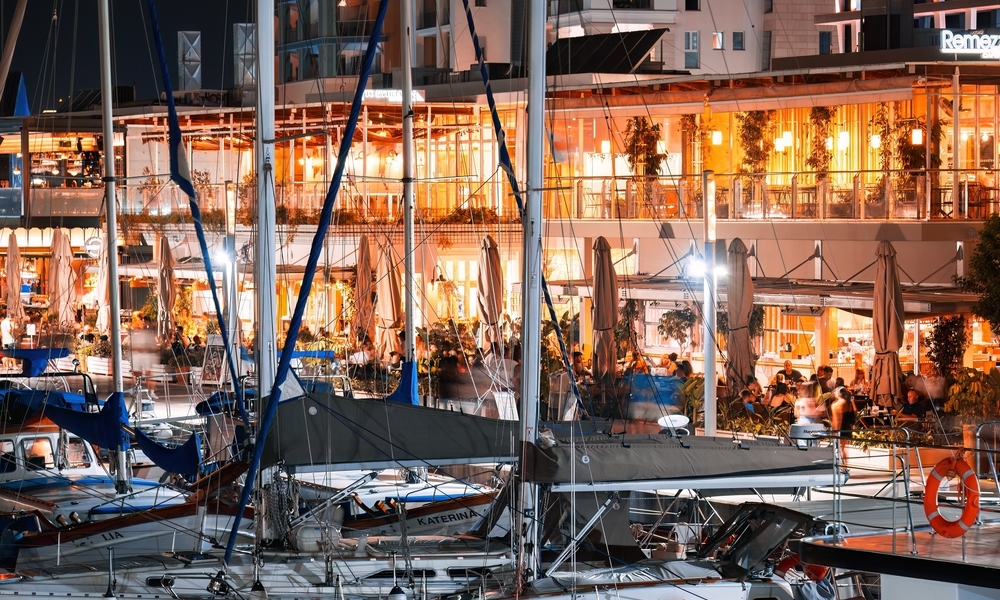
According to Dr. Kouros, even spaces that appear public are often semi-public and heavily controlled. “The old port has become a semi-public space showing clear signs of over-commercialization. Architectural and administrative choices limit how people can use it”. The Marina, he adds, “is a textbook case of exclusion, no benches, no shade, private security, and signs everywhere. It’s designed to discourage anyone who doesn’t belong to a specific social group.”
For Dr. Kouros, the way Limassol’s public spaces are managed reveals much about power and inequality in the city. “By looking at these places, we can see how design, regulation, and commerce shape everyday life. The city’s spaces reflect its priorities, and right now, those priorities serve investment more than community”.
A city for all: the mayor of Limassol on change, coexistence, and the future
Last but not least, Mayor Yiannis Armeftis who does not accept the idea that Limassol is uniquely or suddenly changing. He frames his leadership around preserving optimism and a clear vision for the future: an accessible Limassol that is clean, green, and inclusive, with better infrastructure, improved connectivity, and meaningful projects that enhance quality of life.
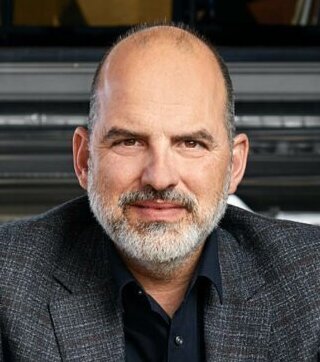
Mayor of Limassol Yiannis Armeftis
Reflecting on his first year in office, Armeftis emphasises that urban change is part of the natural evolution of any city. “All cities evolve,” he says. “I don’t accept that only Limassol is changing, or that this is happening only now.”
Coexistence and inclusion
Armeftis highlights Limassol’s multicultural character as one of its defining strengths. “There is a very good coexistence between communities - Asians, Africans, Ukrainians, Russians,” he says. “There are activities for everyone. Coexistence and integration are key words.”
He admits that rapid expansion has created challenges, particularly environmental ones. Urban sprawl, he warns, can easily undermine the balance of the city if not managed carefully. “Limassol is expanding fast, and that brings various problems,” he says. “We have to ensure growth comes with respect for infrastructure, the environment, and the people who live here.”
New projects for inclusion
Looking back on his first year, Armeftis highlights a series of initiatives aimed at enhancing public space and urban life. The Municipal Council has focused on revitalizing key streets, creating green routes that encourage walking and cycling, and expanding the city’s network of parks.
The municipality is also advancing projects to support students and cultural activities, including new residences and a cultural center, while partnering with the Cyprus Land Development Corporation to provide more affordable housing. These efforts, he says, reflect a commitment to building an inclusive city that meets the needs of all residents.
When asked about everyday concerns, Armeftis identifies traffic as Limassol’s most pressing issue. “There are no magical solutions,” he admits. However, the upcoming infrastructure projects, including bypasses and redeveloped arteries, are expected to bring improvements. The city is also implementing elements of the Sustainable Urban Mobility Plan, such as new one-way systems, pedestrian zones, pedestrian and cycling bridges over the highway, and a Park & Ride facility.
Despite the challenges, Armeftis speaks with optimism. Limassol has been shortlisted for the title of European Capital of Culture 2030, a recognition he describes as “a great collective effort.”
“Our vision for Limassol remains unwavering,” he concludes. “A city that is accessible to all, pioneering, clean, green, with better infrastructure, better connectivity, and projects that improve quality of life. We continue.”
